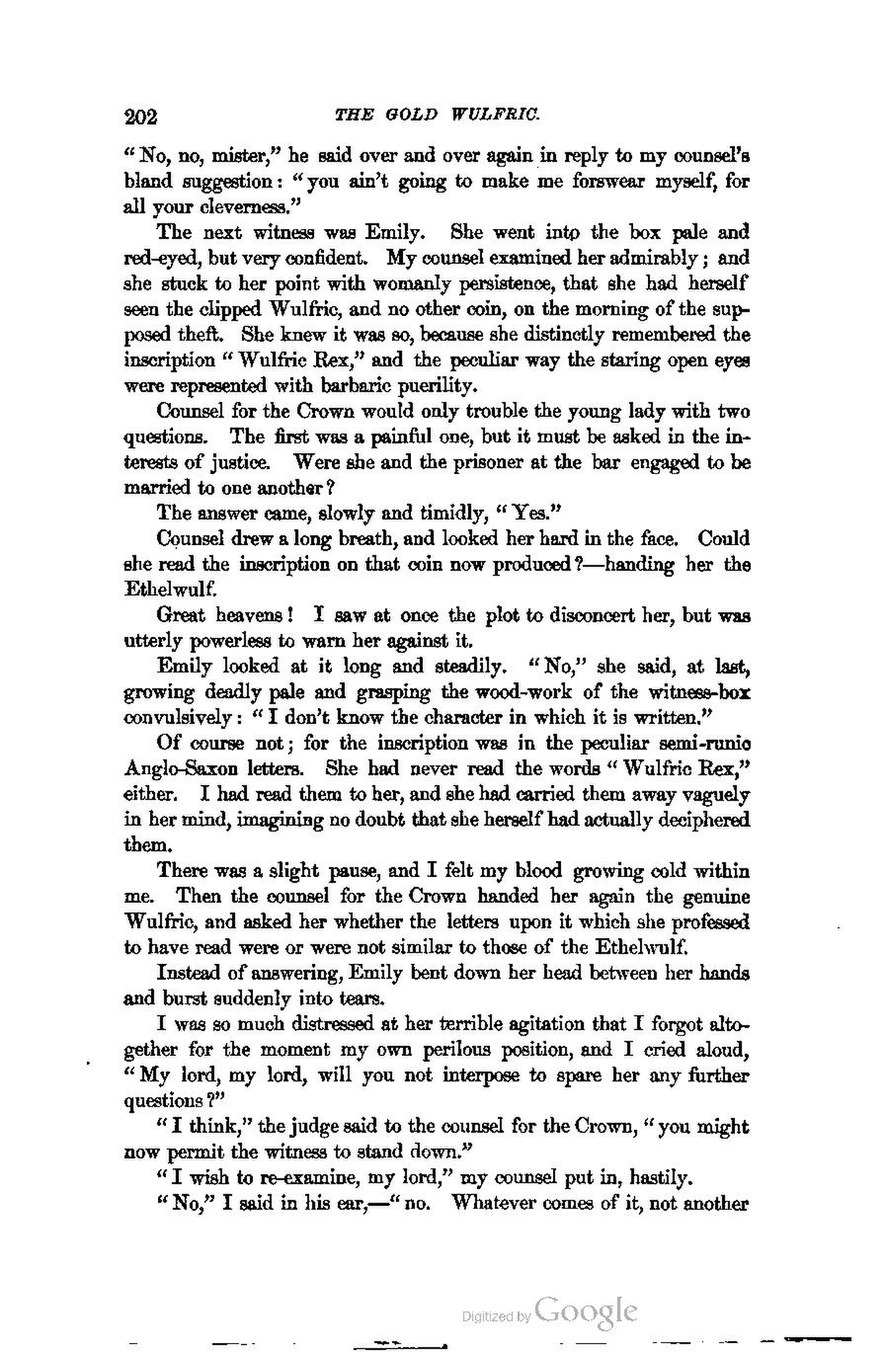"No, no, mister," he said over and over again in reply to my counsel's bland suggestion: "you ain't going to make me forswear myself, for all your cleverness."
The next witness was Emily. She went into the box pale and red-eyed, but very confident. My counsel examined her admirably; and she stuck to her point with womanly persistence, that she had herself seen the clipped Wulfric, and no other coin, on the morning of the supposed theft. She knew it was so, because she distinctly remembered the inscription "Wulfric Rex," and the peculiar way the staring open eyes were represented with barbaric puerility.
Counsel for the Crown would only trouble the young lady with two questions. The first was a painful one, but it must be asked in the interests of justice. Were she and the prisoner at the bar engaged to be married to one another?
The answer came, slowly and timidly, "Yes."
Counsel drew a long breath, and looked her hard in the face. Could she read the inscription on that coin now produced?—handing her the Ethelwulf.
Great heavens! I saw at once the plot to disconcert her, but was utterly powerless to warn her against it.
Emily looked at it long and steadily. "No," she said, at last, growing deadly pale and grasping the wood-work of the witness-box convulsively: "I don't know the character in which it is written."
Of course not; for the inscription was in the peculiar semi-runio Anglo—Saxon letters. She had never read the words "Wulfric Rex," either. I had read them to her, and she had carried them away vaguely in her mind, imagining no doubt that she herself had actually deciphered them.
There was a slight pause, and I felt my blood growing cold within me. Then the counsel for the Crown handed her again the genuine Wulfric, and asked her whether the letters upon it which she professed to have read were or were not similar to those of the Ethelwulf.
Instead of answering, Emily bent down her head between her hands and burst suddenly into tears.
I was so much distressed at her terrible agitation that I forgot altogether for the moment my own perilous position, and I cried aloud, "My lord, my lord, will you not interpose to spare her any further questions?"
"I think," the judge said to the counsel for the Crown, "you might now permit the witness to stand down."
"I wish to re-examine, my lord," my counsel put in, hastily.
"No," I said in his ear,—"no. Whatever comes of it, not another
